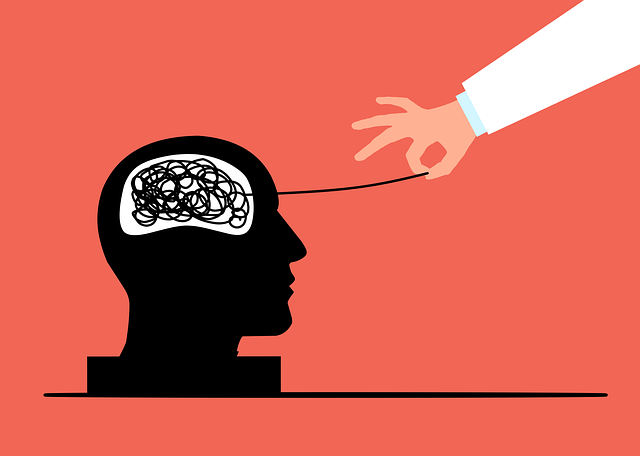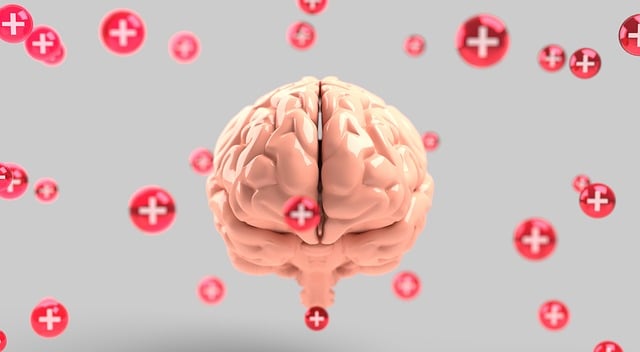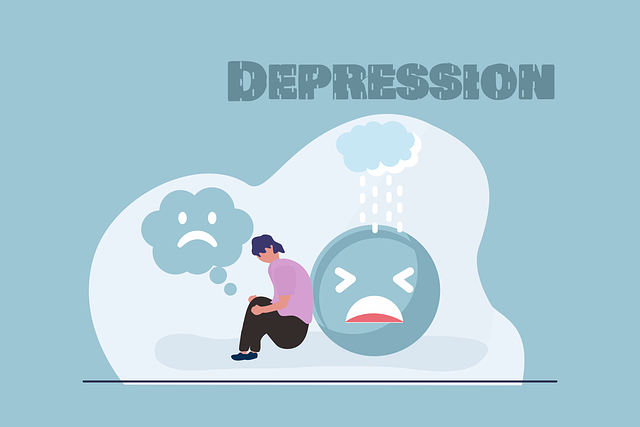Public awareness campaigns play a pivotal role in shaping societal perceptions of mental health conditions like ADD and ADHD in Denver, where accessible therapy services are available. Through compelling storytelling and engaging content, these campaigns dispel myths, foster empathy, and encourage self-awareness, contributing to a culture that values mental well-being. Tailoring approaches to diverse audiences—from children in schools to adults struggling with work-life balance—ensures that Denver ADD-ADHD therapy resonates across demographics. Effective communication, emphasizing both medical accuracy and accessibility, builds strong patient connections. Leveraging traditional media, social media, and online forums strategically, along with evidence-based practices like Risk Management Planning, amplifies the campaign's impact. Measuring success through surveys and behavioral changes demonstrates the campaign's effectiveness in promoting understanding and reducing stigma around Denver ADD-ADHD therapy.
In today’s digital era, public awareness campaigns play a pivotal role in addressing mental health issues like ADD/ADHD. This article explores the development and impact of such campaigns, focusing on Denver as a case study. We delve into understanding the significance of these initiatives, identifying target audiences, crafting compelling messages, and leveraging media channels for maximum reach. Additionally, we discuss measuring success through evaluation metrics, highlighting the ultimate goal: improving access to Denver ADD-ADHD therapy and fostering a more informed community.
- Understanding Public Awareness: The Role of Campaigns in Mental Health
- Identifying Key Target Audiences for ADD-ADHD Awareness in Denver
- Crafting Effective Messages: Communicating ADD-ADHD Information Clearly
- Choosing the Right Channels: Media and Digital Platforms for Maximum Reach
- Measuring Success: Evaluating the Impact of Public Awareness Campaigns
Understanding Public Awareness: The Role of Campaigns in Mental Health

Public awareness campaigns play a pivotal role in shaping societal perceptions and understanding of mental health issues, including conditions like Attention Deficit Disorder (ADD) and ADHD. These campaigns serve as educational tools, breaking down stereotypes and promoting empathy. In Denver, where ADD-ADHD Therapy services are readily available, such initiatives are crucial for fostering an environment that supports individuals with these neurodivergent conditions. By raising awareness, the community can better understand the unique challenges faced by those affected, leading to increased acceptance and improved access to much-needed therapy.
Through creative storytelling, engaging content, and targeted messaging, campaigns can dispel myths surrounding mental health. They encourage self-awareness exercises and promote Mind Over Matter principles, teaching individuals how to navigate and manage their conditions effectively. The impact of these efforts extends beyond the immediate audience; they contribute to a broader culture of burnout prevention, where recognizing and addressing mental health issues is normalized. This shift in perception can lead to earlier interventions, improved treatment outcomes, and ultimately, enhanced well-being for all.
Identifying Key Target Audiences for ADD-ADHD Awareness in Denver

In developing public awareness campaigns for ADD-ADHD in Denver, identifying key target audiences is paramount to ensuring effective messaging and engagement. The first step involves recognizing that individuals with Attention Deficit Hyperactivity Disorder (ADD-ADHD) span a diverse range of ages, backgrounds, and professions within the Denver community. This includes children in educational settings, adolescents navigating social dynamics, adults struggling with work-life balance, and older adults facing age-related challenges. Each group has unique needs and preferences for accessing information and support related to mental wellness, particularly stress management.
For instance, school-aged children and their parents may benefit significantly from collaborative efforts between local educational institutions, healthcare providers, and Mental Wellness initiatives focused on early intervention and tailored strategies for managing symptoms in academic environments. Similarly, organizations like the Stress Management Workshops can play a vital role in reaching working adults by offering accessible resources and workshops designed to promote coping mechanisms and productivity enhancement techniques. By tailoring public awareness campaigns to these distinct audiences, Denver ADD-ADHD therapy becomes more inclusive and impactful, fostering open conversations around mental health challenges and encouraging individuals to seek appropriate support.
Crafting Effective Messages: Communicating ADD-ADHD Information Clearly

Crafting clear and compelling messages is paramount when addressing complex topics such as Attention Deficit Disorder (ADD) or Attention Deficit Hyperactivity Disorder (ADHD). In the context of Denver ADD-ADHD Therapy, for instance, professionals must navigate a delicate balance between providing accurate information and ensuring accessibility. Effective communication strategies are essential to bridge the gap between medical facts and everyday understanding.
Empathy building plays a pivotal role in this process. By incorporating Self-Care Practices and employing techniques that foster empathy within healthcare settings, mental health professionals can enhance patient connections. This, in turn, facilitates a deeper exploration of symptoms, challenges, and successes. Furthermore, Risk Management Planning for Mental Health Professionals is crucial to navigate the nuances of ADHD communication, ensuring both the well-being of practitioners and the accuracy of information conveyed to the public.
Choosing the Right Channels: Media and Digital Platforms for Maximum Reach

In the digital age, public awareness campaigns about mental health issues like ADD-ADHD in Denver need a strategic approach to reach the widest audience. Choosing the right channels is crucial for maximizing engagement and impact. Traditional media outlets such as local television and radio stations remain powerful tools, offering broad coverage and established trust with viewers and listeners. However, digital platforms offer unique advantages, especially when targeting specific demographics. For instance, social media networks provide an opportunity to connect directly with individuals who might be experiencing ADD-ADHD or supporting loved ones, fostering a sense of community and understanding. Online forums and mental health communities can also amplify messages and facilitate open discussions.
In addition to these channels, incorporating Risk Management Planning for Mental Health Professionals and implementing Compassion Cultivation Practices and Stress Reduction Methods within the campaign can enhance its effectiveness. By presenting evidence-based strategies alongside awareness initiatives, campaigns can empower individuals with tools for self-care and risk mitigation, fostering a more comprehensive understanding of mental health. This multi-faceted approach, combining traditional and digital media with tailored professional practices, ensures that messages resonate deeply with the Denver community, promoting both ADD-ADHD therapy accessibility and broader mental well-being.
Measuring Success: Evaluating the Impact of Public Awareness Campaigns

Measuring success is a pivotal aspect of evaluating the impact and effectiveness of public awareness campaigns, especially when addressing mental health issues like ADD-ADHD in Denver. The goal is to create meaningful change by fostering understanding and reducing stigma. Organizations can employ various methods to assess their campaign’s reach and influence. One way is through post-campaign surveys that gauge participants’ knowledge gain and attitude shifts regarding ADD-ADHD. These assessments provide valuable data on the campaign’s success in raising awareness and dispelling misconceptions.
Additionally, tracking long-term behavioral changes is essential. For instance, Mental Illness Stigma Reduction Efforts can measure whether individuals are more likely to seek Denver ADD-ADHD therapy or other mental health support services after exposure to the campaign. Compassion Cultivation Practices and Stress Reduction Methods, often integrated into such campaigns, might also be evaluated by measuring participants’ reported improvements in emotional well-being and coping mechanisms.
Public awareness campaigns play a pivotal role in shaping societal understanding of mental health conditions like ADD-ADHD. By strategically targeting audiences in Denver through compelling messages and effective media channels, these campaigns can significantly impact the accessibility and acceptance of Denver ADD-ADHD therapy. Measuring success becomes crucial to understanding what resonates with communities, allowing for continuous improvement and enhanced awareness. Through dedicated efforts, we can foster a more inclusive environment where individuals in Denver receive the support they need for their mental health journeys.













